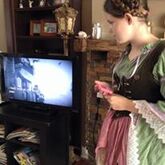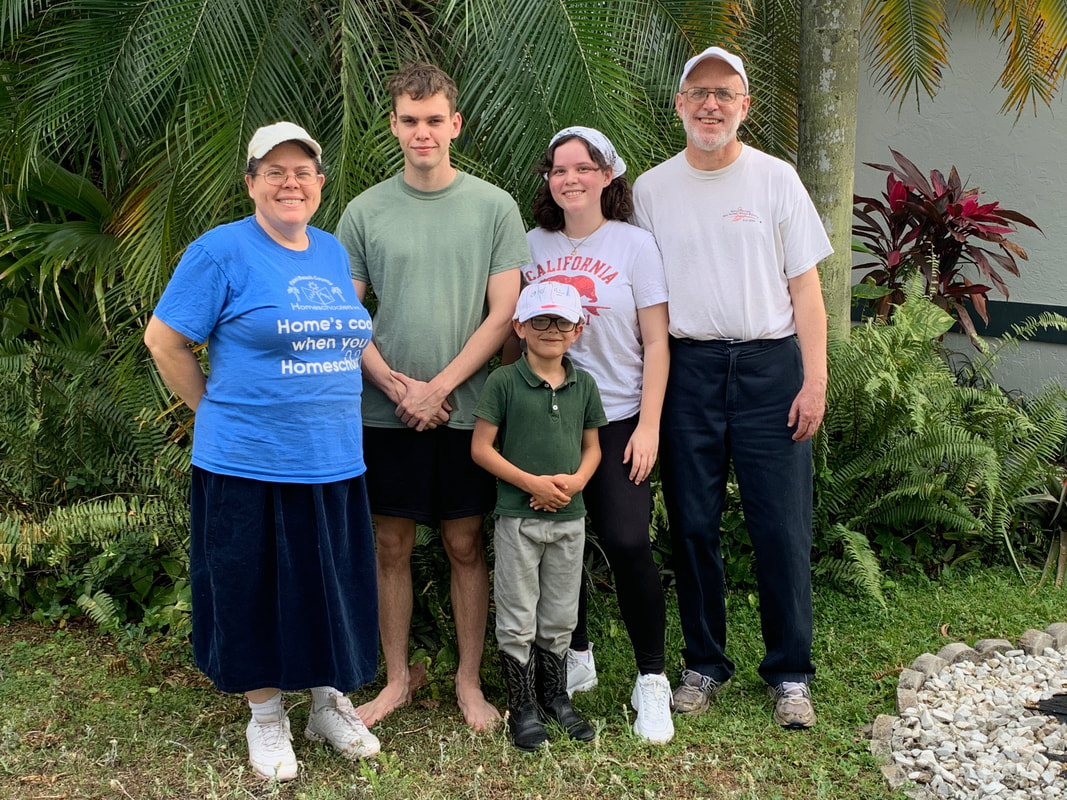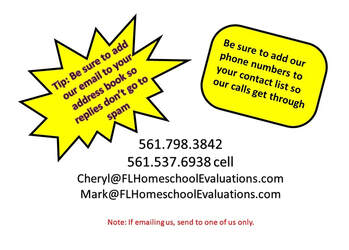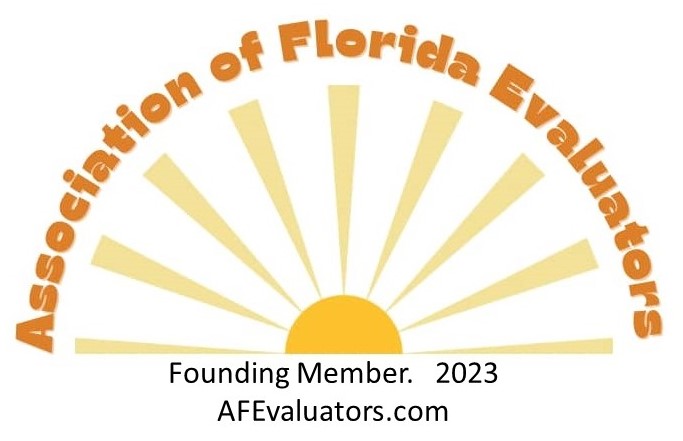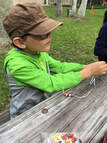|
Talking About
Florida Homeschooling... Evaluations and More |
A good evaluator works for the parents, assisting them in meeting legal requirements and in supporting them when districts overstep their bounds." |
|
I was making plans to homeschool my children long before they were born and even before I met my husband. I’d been homeschooled for a couple of my own elementary years, back when my family was sailing around the world in the ferro-cement yacht that my dad built; obviously, there are no schools far out at sea, and my mother’s plans to hire a trained teacher to continue my schooling fell apart when the teacher hired made it clear that she’d come along for a vacation and had no intention (despite her agreement) to teach me anything. My childhood experiences in homeschooling, with a mixture of textbook and more unconventional lessons, convinced me that homeschooling was the best form of education. I learned more, with less wasted time, had fewer troubles with bullies, and had more time for fun and more freedom with homeschooling than in any of the more than a dozen schools I attended before and after my homeschooling experiences. I wanted that for my own children. Add to that my experiences as a classroom teacher in a wide variety of public and private schools and even in a Dept. of Defense Dependents School, and I knew that home education would be better than most of what goes on in schools. That’s not to say that there aren’t some great school teachers out there, but there are so many bad teachers, even in the best of schools, and so many bad schools, that I knew I could do better for my children at home.
Therefore, in 2000, before my eldest was born, I was busy researching homeschooling in Florida. I found online groups where lawyers discussed Florida’s home education laws and how they played out in court. I found websites where parents discussed the details of homeschooling and how they played out with Florida laws. I read lots of books and listened to discussions online. I found Florida laws listed online and read them for myself and studied them carefully. I wanted to be an expert at what was required before I needed to actually put any of it into practice. Three years later, before any of my children were old enough to be officially homeschooled, I started doing portfolio review evaluations for families in my area. I don’t remember advertising myself as a homeschool evaluator, but rather people heard that I was a Florida certified teacher and knew about homeschooling, and was planning to homeschool my own and was even homeschooling a friend's child*, and so they asked if I could do their children’s evaluations. As time went on, I grew frustrated at some of the questions I saw posed online about portfolio review evaluations. Clearly, there were a large number of teachers doing evaluations who hadn’t read Florida law at all and were making up their own requirements. For example, some told parents that they must have documentation, dated, to go with every single educational activity listed in their log and were refusing to give a positive evaluation if any paperwork was missing. But the law required only samples of work which meant parents didn’t have to have paperwork for every educational activity and, besides, even in classrooms, a lot of educational activities take place in oral discussions or other ways that don't leave a paper trail. Some teachers told parents that they must finish textbooks in each subject area to get a positive evaluation; Florida law didn’t require this and schools practically never finished their texts, so that didn’t make sense as a requirement. Besides, I knew of other classrooms where textbooks weren’t used and those teachers were lauded as innovative, so where did a requirement to have to use textbooks come from? Or how about the teachers that required parents to complete a lesson plan book complete with references to Florida’s public school standards for each lesson? None of that was required in the law. It seemed that many teachers assumed that in order to teach kids, paperwork had to be kept in the fashion that public schools required of their teachers (and sometimes even beyond what was required by public schools). I came at this from another point of view. Not only did I learn more from my parents, including my dad’s unusual math lessons that had no lesson plan write-ups at all, but my first full-time teaching jobs were in private schools that didn’t have the detailed paperwork requirements of public schools. Yet, private schools have a reputation for educating students better; clearly the paperwork of public schools isn’t required for a good education and neither is it specified in our state laws. If public schools were providing the best education possible and were to be copied in all ways, why would homeschooling be growing in popularity year after year? As I answered questions online for homeschool parents across Florida and urged them to find another evaluator if their evaluator was making up requirements, people started to ask if I could do their children’s evaluations long-distance. Others asked if I could start a website about the evaluation process since there was no site at that time dedicated to such information. FL Homeschool Evaluations started as a page on Yahoo! Groups and later became a page on Facebook, too, where questions about evaluations were answered and people could find an evaluator. This site continues those pages for those who aren’t on Yahoo! Groups or on Facebook. Cheryl *And yes, homeschooling another’s child is legal in Florida. In fact, the Florida Dept. of Education’s Office of Choice--the organization that oversees k-12 education outside of the standard public schools--at that time had a question about it on their FAQ page; they stated that as long as the parent directed the education, the parent could designate others to teach their children. That question was removed from their page a few years ago, but the law hasn’t changed.
0 Comments
Your comment will be posted after it is approved.
Leave a Reply. |
Archives
April 2024
Categories
All
|

 RSS Feed
RSS Feed
